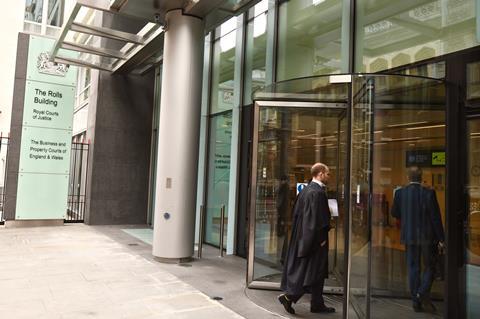The High Court has thrown out a five-year-old negligence claim against a London firm after a ruling that the claimant had no genuine intention of progressing it.
Ruling in Alfozan v Quastel Midgen LLP, His Honour Judge Pearce said he was satisfied the claimant had been guilty of ‘warehousing’ the claim for a prolonged period and that anything less than a strike-out was unlikely to change the way it was being conducted.
The commercial firm applied to strike out the claim as an abuse of process after a related claim against another defendant met the same fate. The claimant, a businessman living in Saudi Arabia, alleged negligence and/or breach of trust in facilitating a fraud relating to hundreds of property transactions. The judge noted the claim was ‘hotly contested’ on the merits, as well as being rejected as an abuse of process because there was no intention of it being pursued.
The claimant submitted he that intended to continue this litigation, as demonstrated by his resisting this application, paying money into court as security for costs and requesting a CCMC.

The firm identified 21 separate breaches of the pre-action protocol for professional negligence claims and said there was no explanation for numerous delays since the possibility of litigation was first raised in 2017.
The judge said it was a ‘striking feature’ of the case that the claimant had throughout ‘done little more than the minimum necessary to keep the claim alive’. The claim was issued close to the expiry of the limitation period, there was no pre-action correspondence, and amended particulars of claims were not supplied until about 17 months after the claimant conceded the need to amend.
The judge said there was a picture of ‘almost complete inactivity’ beyond the basics of issuing and serving the claim, and even the security of costs ‘in reality had the effect of simply keeping alive a case that might otherwise have been liable to be stayed’.
The judge added: ‘It is now more than three years since the claim was issued and [Quastel Midgen] is still not in receipt of particulars of claim which adequately set out the case against it.
‘The claimant has not taken the opportunity to explain why the claim has been progressed in such a dilatory fashion and, without some explanation, the natural inference is that there is no good explanation at all.’



























1 Reader's comment